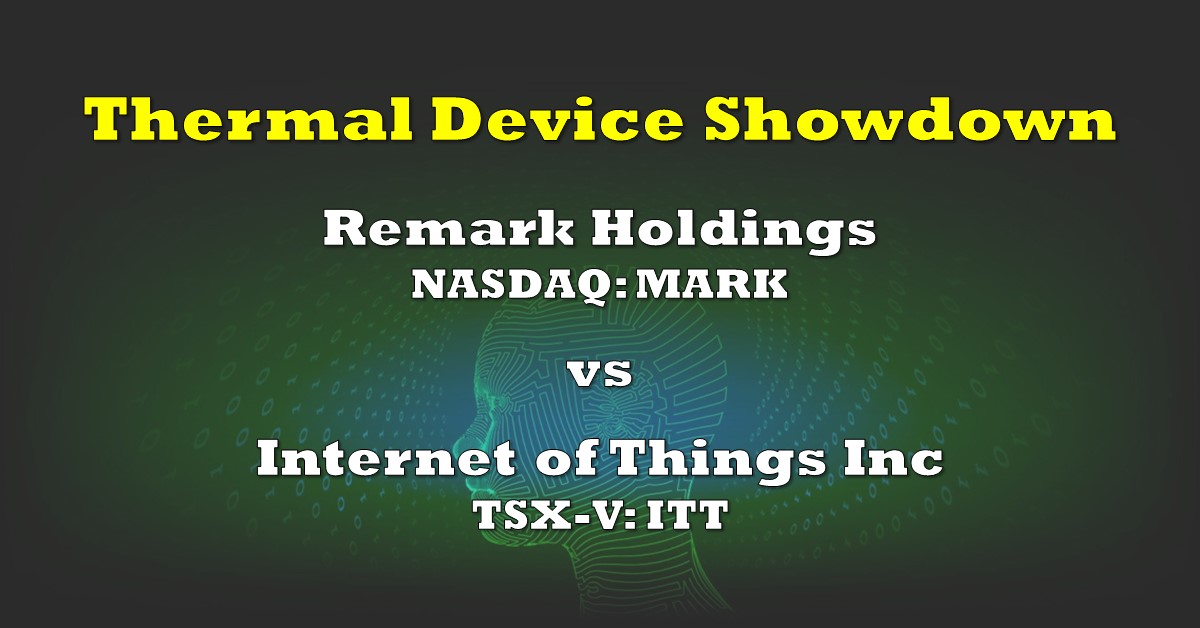Remark Holdings (NASDAQ: MARK) has been on a wild run as of late since announcing on April 30 that the company had launched its thermal imaging devices intended to help identify persons whom may be experiencing abnormal body temperatures. The thermal devices are akin to the recent announcement by Internet of Things Inc (TSXV: ITT) (OTC: INOTF) and their ThermalPass product, which also aims to identify persons whom are experiencing fever-like symptoms in a bid to reduce the spread of influenza and other viruses.
Collectively, the two products appear to be similar in nature with the intended goal to be to identify persons whom are potential ill to keep other patrons safe. Both thermal devices are intended to scan persons without disruption, reducing the need for long line ups at entrances to malls, schools, government facilities, office buildings, stadiums and music venues among other prominent locations.
But how do the products differ? Let’s do an in-depth comparison.
Remark’s TK-1 System
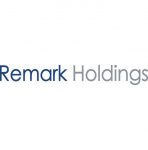
On April 30, Remark Holdings introduced what it refers to as a “family of AI thermal solutions,” with the most prominent device being the TK-1 system. The system is stated to be an AI-powered device that can be mounted on walls, tripods, or ceilings to scan a wider area for persons with abnormal temperatures. The product is intended to be mounted near facility access points, and works best 2-5 metres away from the target, where it can estimate temperatures to within 0.3C of accuracy.
Remark has indicated that the system can scan up to 120 people per minute via a bi-spectral thermal camera, which then quietly alerts security personnel to anyone with higher than normal temperatures in order for them to conduct a secondary check.
The system can be installed as a standalone unit or integrated into a wider security system. The company has provided little detail on the size or appearance of the system however.
The company has also brought to market what it refers to as the Thermal Pad, or R-Pad, which is a tablet that uses a medical grade infrared sensor to scan patrons at facility access points, as well as “Thermal Helmets” which use a thermal imaging camera to scan patrons.
Limited specifications have been released on all of Remark’s AI-based thermal imaging devices.
Internet of Things Inc.’s ThermalPass
Internet of Things Inc (TSXV: ITT) (OTC: INOTF) introduced the ThermalPass to the market last week, identifying the product as a solution for fever detection at facility access points. The product is to be located at high-traffic entrance ways of public locations, such as malls, music venues, government buildings, health facilities and stadiums, where through the use of 19 infrared medical grade thermal sensors it scans for abnormal body temperatures.
Much like the solution presented by Remark, the device has been developed for high-volume use, wherein individuals are not required to stand still for proper scanning to occur. Rather it eliminates long lineups at entrances by enabling persons to walk through the device, which looks akin to a metal detector, at a normal pace. If a higher than normal body temperature is detected security will be quietly alerted either by a light or by a sound, enabling secondary screening of the individual in question.
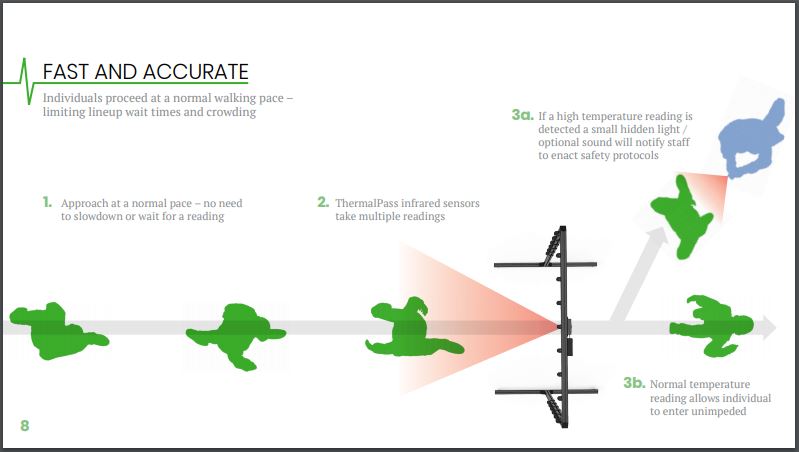
Unlike Remark, detailed specifications of ITT’s ThermalPass have been released to the public. Scans are conducted via 19 infrared thermal medical grade sensors mounted on a sturdy frame that is placed at access points, and can be located either indoors or outdoors thanks to its waterproof construction, with the system being more stable than thermal imaging. The sensors, accurate to within 0.2C, are mounted around the frame and aim to target the forehead of the individual for the most accurate reading.
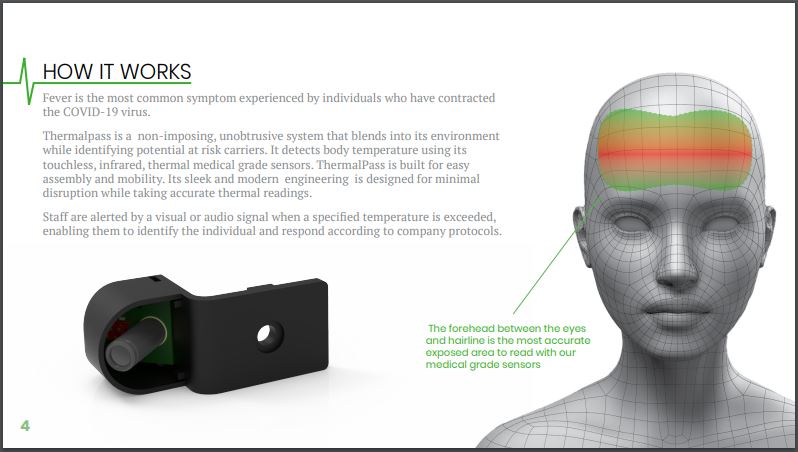
So, why the push?
Notably, the market had a rather small response to Remark’s initial announcement related to its thermal devices on April 30. In fact, the day after it gave up 5.16% of the gains it made the day prior. In the days following, however, it shot off like a rocket. Why?
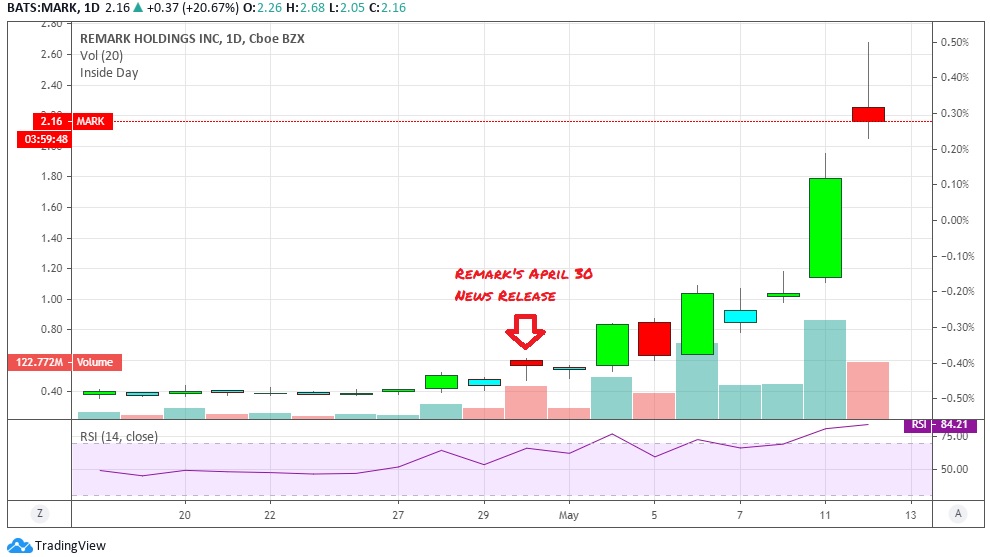
As it turns out, it appears that Remark may have secured a sizable arrangement with that of Wynn Resorts based on leaked data. The company, whom previously operated Vegas.com and is based in Las Vegas, Nevada, notably should have some connections as a result of its location. While neither company has officially confirmed the rumour, it was enough for the markets to react in a sizable way with the equity hitting a high of $2.68 on the run up.
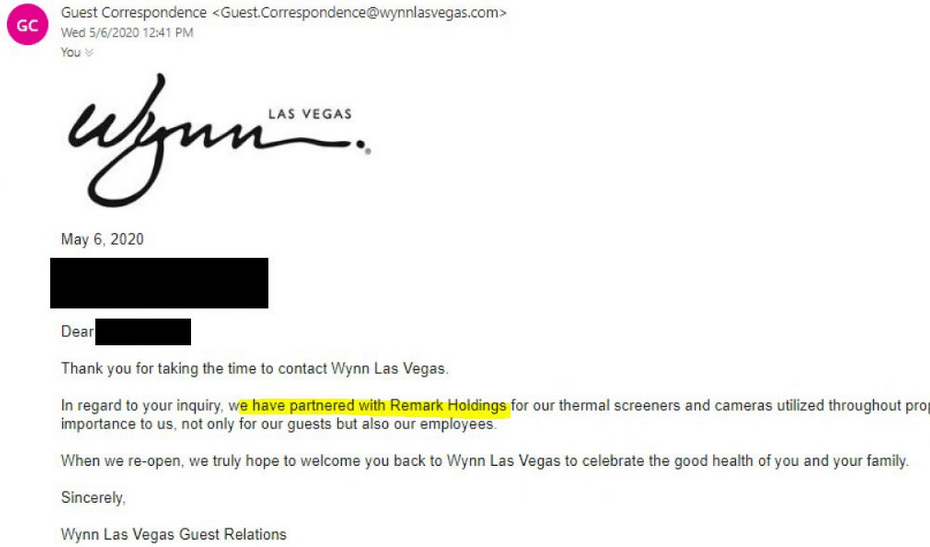
While Internet of Things Inc may not have a solid rumor to push the equity sky high as of yet, it does have notable and significant customer connections that should be identified. The ThermalPass by ITT comes from a joint venture with the tech company and Commersive Solutions, a firm with extensive retail experience, connections and customer base.
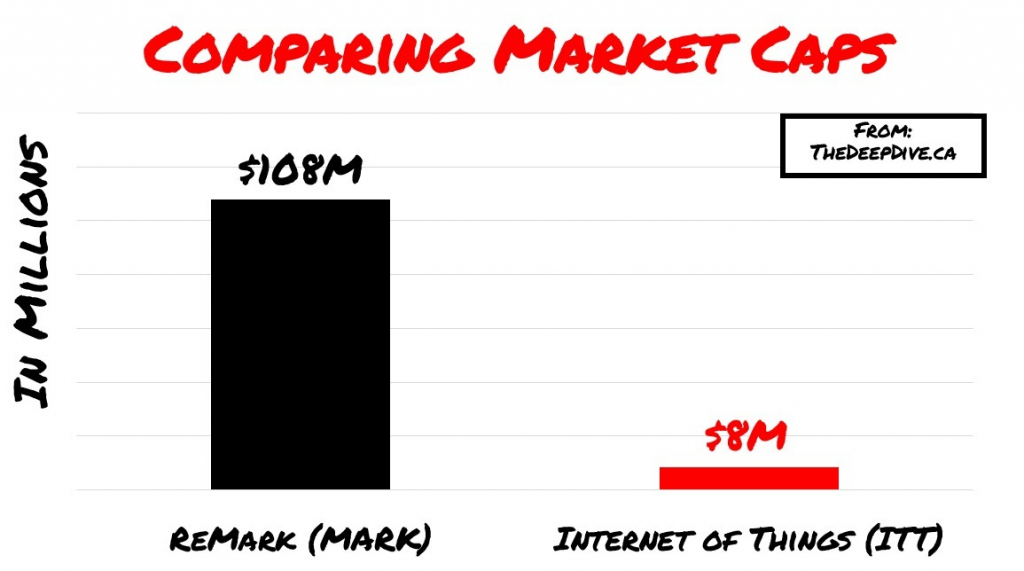
Notable clients of Commersive include Microsoft, whom the company has worked with extensively on projects such as retail promotion of Xbox One and Microsoft Office, as well as McDonalds, whom it worked with to develop the use of its downloadable food ordering app. While the former represents potential office use opportunities for the ThermalPass system, the latter is much more significant given the sprawl of McDonalds restaurant locations globally.
Information for this briefing was found via Sedar, Casino.org, Internet of Things and Remark Holdings. Not a recommendation to buy or sell. Always do additional research and consult a professional before purchasing a security. The author holds no licenses.
FULL DISCLOSURE: Internet of Things Inc is a client of Canacom Group, the parent company of The Deep Dive. The company has been compensated to cover Internet of Things Inc on The Deep Dive, with The Deep Dive having full editorial control. Not a recommendation to buy or sell. Always do additional research and consult a professional before purchasing a security.

